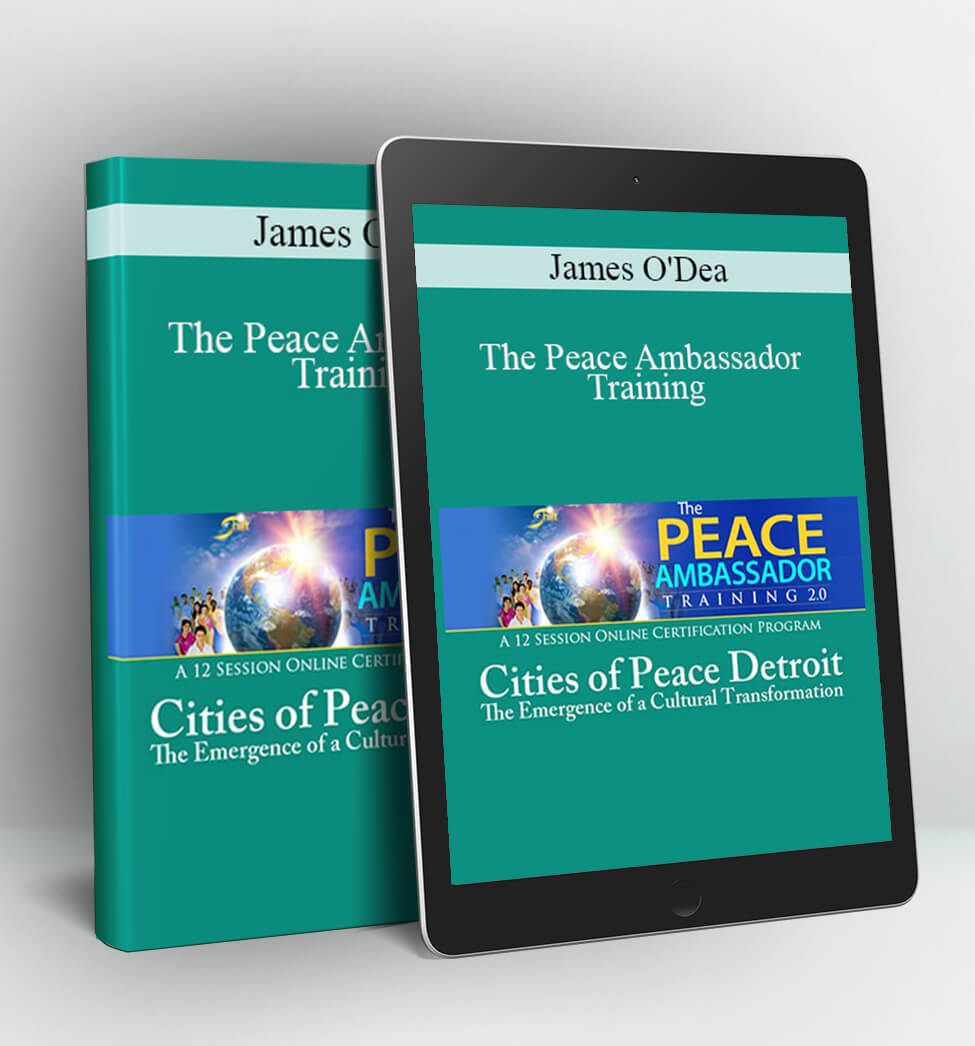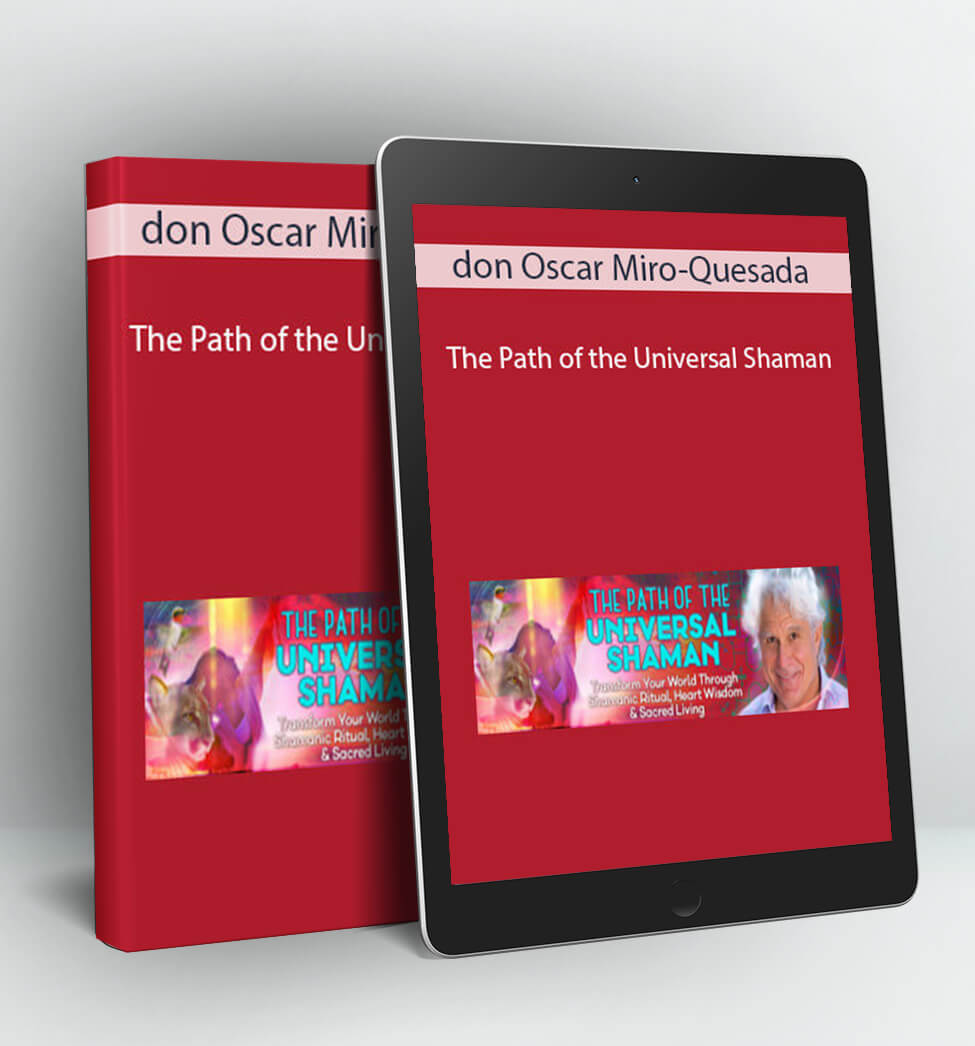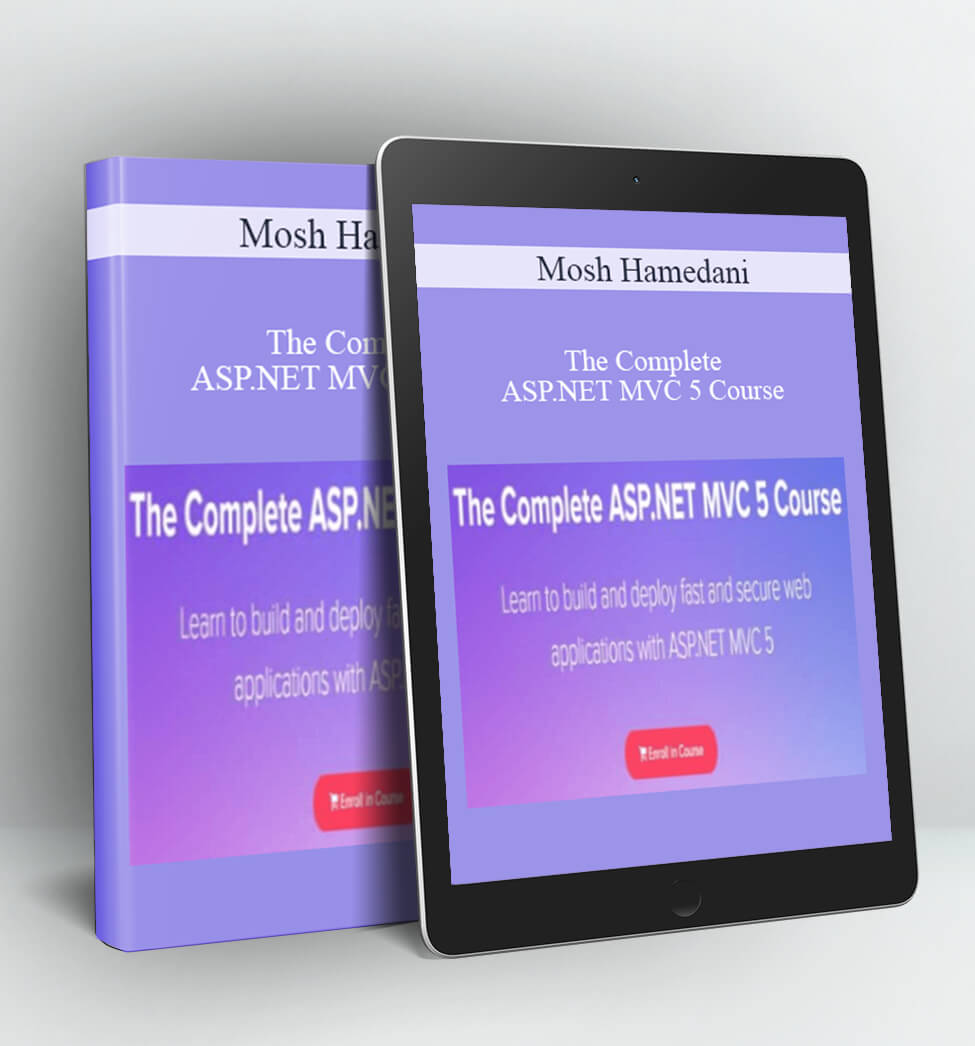The Peace Ambassador Training – James O’Dea
What You Will Learn: Course Overview
The Training will offer you an immersive experience in building skills with today’s top peace leaders and is divided into five pillars:
- Deep Personal Peace
- Healing Personal and Collective Wounds
- Communicating Peace
- Mastering Systems Change
- Activating and Organizing for Peace
For each Pillar of Peacebuilding, James O’Dea will teach the first session drawing upon insights and practical tools from his bestselling book, Cultivating Peace.

The following two sessions of each pillar will feature two core faculty on the methodologies and peace practices they use in their work. These sessions are a combination of live teaching and the very best core faculty interviews from previous Peace Ambassador Trainings. James will bring them all to life by weaving and integrating these teachings into a cohesive map for peacebuilding, from the personal to the planetary, throughout the training.
You’ll also have weekly practices, readings, and assignments that deepen your experience of the material and put you into close collaboration with other training members from around the world.
Pillar 1: Cultivating Deep Personal Peace
These sessions will focus on helping you cultivate the psychological, emotional and spiritual dimensions of peace as the great foundation for deep engagement in the world.

Week 1: Peace and Freedom from the Inside Out (Nov. 13)
Faculty: James O’Dea (full bio)

James will open the training with an inspiring session about what it means to be a Peace Ambassador in today’s world. He invites us to take responsibility for cultivating inner peace while working in the world from a place of deep integrity. As James says, “The peacebuilder must develop an impressive skillfulness in offering solutions, avoiding the blame game, and playing a mediating role between perspectives that are locked inside self-limiting definitions.”
At the same time, the Peace Ambassador does not take him/herself too seriously. “A world without laughter would not be a safe or peaceful world,” James says. For instance, “the fundamentalists are not having fun!”
In this session, you will:
- Take careful inventory of your inner moral maps, belief systems and psychological perspectives and examine how they influence your relationship with the outer and vice versa.
- Identify the obstacles that prevent you from releasing your own essential qualities, talents and capacities
- Learn personal peace practices that help you tap into your deepest essence and create a solid foundation for authentic inner peace

Week 2: The Science of Inner Peace (Nov. 20)
Guest Faculty: Cassandra Vieten, Director of Research at Institute of Noetic Sciences (full bio)

Scientific research is validating the wisdom of ancient spiritual practices, including mindfulness meditation.
In this session, you will:
- Learn about the emerging scientific research on the human capacity for experiencing deep inner peace and awakening compassion for others
- Gain tangible tools that can be applied on a daily basis to help you access a place of balance and equanimity, even in the midst of challenging situations and conflicts

Week 3: Making Peace with Oneself (Nov. 27)
Guest Faculty: Aqeela Sherrills, celebrated peacemaker who brokered truce between the Crips and the Bloods in Los Angeles, now the Executive Director of YES! and advisor to peacebuilding projects worldwide (full bio)

Aqeela will provide a powerful and transparent glimpse into his own personal transformation, one that required taking responsibility for hidden fears and shames that were influencing his behaviors. He then will tell how his own personal transformation allowed him to address the causes of violence that took the life of his son. By going deeper into his inner peace practice, Aqeela helped bring peace between warring gangs.
In this session, you will:
- Gain both inspiration and tangible tools for how to look inward to address your own shadows and to develop a daily personal peace practice
Pillar 2: Healing Personal and Collective Wounds
These sessions will focus on giving you the skills to transform personal wounds and collective trauma in order to create personal and social transformation and significant evolutionary change.

Week 4: Ending the Transmissions of Wounds (Dec. 4)
Faculty: James O’Dea (full bio)
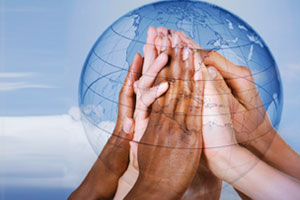
James O’Dea introduces the second pillar by calling us to “interrupt the transmission of wounds from generation to generation precisely because their persistence is so disruptive to whole-system health and because the problem of passing on intergenerational trauma is so overlooked.”
In this session, you will:
- Begin to examine your relationship to personal wounding and its various subtle nuances
- Look at how your unconscious behaviours contribute to larger social wounding
- Examine what keeps you from truly living your highest ideas and dreams
- Learn tangible tools that you can use to deepen your own personal healing and help facilitate healing in others

Week 5: Non-Violence: A Path to Peace – Stories about Mahatma Gandhi (Dec. 11)
Guest Faculty: Arun Gandhi, the grandson of India’s legendary leader, Mohandas K. “Mahatma” Gandhi (full bio)
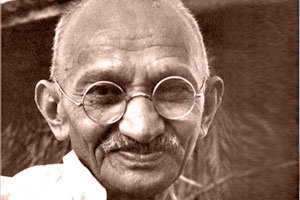
Who better than Mahatma Gandhi’s grandson to challenge you to “be the change you wish to see in the world.” In this session, Arun Gandhi will share intimate stories about how his grandfather taught him to examine his unconscious desires and to see their relationship to passive violence in the world.
In this session, you will:
- Be inspired to step up your inner peace practice and tap into new levels of integrity and strength
- Learn the meaning of Mahatma Gandhi’s saying, “I can no more preach nonviolence to a coward than I can tempt a blind man to enjoy healthy scenes. Nonviolence is the summit of bravery.”

Week 6: The Power of Forgiveness – Transforming Personal Tragedy into Life Purpose (Dec. 18)
Guest Faculty: Azim Khamisa, internationally renowned expert on forgiveness, hailed by the Dalai Lama and Thich Nhat Hanh (full bio)
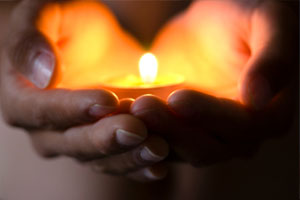
This is possibly the most powerfully moving session of the Peace Ambassador Training. Azim Khamisa is a world-renowned master teacher on forgiveness. He will tell the story of how he lost his only son to senseless gang violence and authentically share his journey into the depths of trauma and despair.
In this session, you will:
- Learn how to leverage the power of forgiveness to create transformation
- Discover how you can engage in forgiveness even when it seems impossible
Pillar 3: Communicating Peace
In these sessions and practices, you’ll advance in the art of skilled communication for yourself, family, community and world. You’ll learn the latest in peacebuilding, conflict transformation, social discourse and dialogue. Core faculty includes:

Week 7: Peaceful Communication and Energy Mastery
(Jan 8)
Faculty: James O’Dea (full bio)
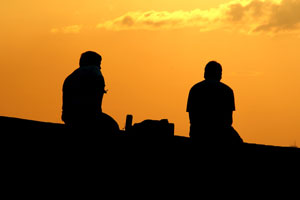
Energy mastery is one component to effective communication as a Peace Ambassador. Other components are dialogue and listening. As James says, “Against all odds we must learn to dialogue, or die….If we were to learn that listening to each other was the key to opening each other’s hearts, we would listen until there was peace on earth.”
In this session, you will:
- Understand how the ability to listen deeply and consciously has transformed difficult conflict situations into peaceful resolutions
- Discover how to bring the power of conscious listening to your own conflicts
- Learn how you can process and transform energy for peaceful encounters
- Gain effective strategies for dealing with physical bullies, emotional bullies and intellectual bullies
- Understand your unique approach to processing energy – determine whether you are an energy bouncer, an energy sponge, an energy zapper or a peaceful energy transformer

Week 8: The Common Ground Approach (Jan 15)
Guest Faculty: Susan Collin Marks, senior vice-president of Search for Common Ground, one of the largest conflict transformation organizations in the world; served as a peacebuilder in S. Africa’s transition from apartheid (full bio)
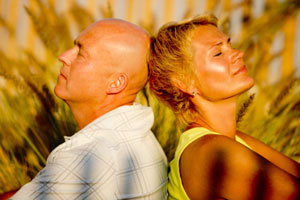
Search for Common Ground is one of the leading conflict transformation organizations in the world, with projects in over 30 countries. Susan Collin Marks is the embodiment of the “Common Ground Approach” to transforming conflict from adversarial approaches to cooperative problem solving.
In this session, you will:
- Gain personal insights into how to help facilitate dialogues between perceived enemies
- Understand how to bridge inner work with effective outer communication tools.to apply to your daily life and with loved ones, as well as people in your community

Guest Faculty: Dr. William Ury, co-author of the global bestseller Getting to YES, author of The Power of a Positive No and co-founder of the Harvard Negotiation Project (full bio)

Dr. Ury is one of the most well-respected authors and practitioners of effective negotiations in the world.In this session, you will:
- Gain detailed insights into the science of communicating effectively in contentious situations, helping you to identify and address personal and shared needs
- Learn the art of negotiation you can apply to your life as well as to larger social issues
Pillar 4: Mastering Systems Change
In these sessions, you’ll hone your understanding for how to create systemic change via models and strategies for unprecedented whole system shifts.

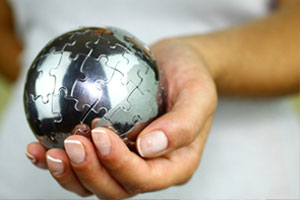
To begin Pillar 4, James is very clear: “To be an ambassador of peace, you cannot be a partisan of the part; you are called to be a representative of holistic thinking and emotional and social intelligence. Creating a culture of peace is a whole-systems challenge.”In this session, you will:
- Learn about systemic transformation and peace work in the context of complex adaptive systems
- Learn a new set of “simple rules” used for addressing and fixing complex systems

Guest Faculty: Louise Diamond, co-founder of the Institute for Multi-Track Diplomacy, founder of Global Systems Initiative and author of four books on peace (full bio)
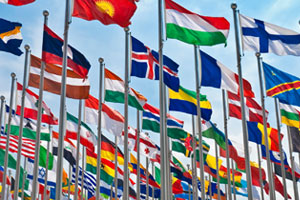
Louise Diamond is a peacebuilding pioneer who has initiated and led whole-systems dialogues in Washington, DC, with military, government and nonprofit leaders. She is a brilliant peacebuilder who skillfully links the inner process and spiritual wisdom with practical approaches to transforming global situations. She will also share her personal journey of a health crisis that led her into a spiritual relationship with nature, where she learned the whole-systems principles that she has introduced to world leaders.In this session, you will:
- Learn the “12 Simple Rules of Systems Thinking for Complex Global Issues”
- Look at how you can begin to link your daily life and personal peace practices to transforming larger systems challenges

Guest Faculty: David Korten, visionary, engaged citizen, author of Agenda for a New Economy: From

James is quick to point out: “We are now witnessing the planet-wide devastation that results from thinking of the economy and ecology as separate systems. Sustainability is, therefore, a peace issue….”While the global economic situation can seem overwhelming, David Korten provides common sense strategies and a sense of real hope to you – that you can do your part to evolve our economic model, starting in your own community.
In this session, you will:
- Understand the realities of the economic and environmental challenges facing the planet and examine the underlying paradigms that have created this crisis
- Learn about the efforts emerging around the world to create new economic systems based on an understanding of interdependence and interconnectedness
Pillar 5: Activating and Organizing for Peace
These classes and practices will help you develop community-building and collaboration skills that expand your leadership capacity and help you offer your deepest gifts.

(Feb. 12)
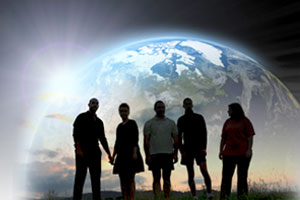
Throughout the Peace Ambassador Training, James will highlight the strengths and capacities of an evolved peace leader. In this session, James will review these leadership skills and then invite you to step up in your own way. In addition, Philip Hellmich will outline the accomplishments from the Summer of Peace 2012, a collaborative initiative that reached tens of thousands of people in 133 countries.As James writes, “In a time of upheaval such as we are now witnessing on planet Earth, unprecedented opportunities arise for creativity and new leadership…. The emerging leader is you! Without you, there is no collective audacity to create the tipping point in human evolution.”
In this session, you will:
- Understand the leadership skills needed to be an evolved peace leader
- Activate your part in the larger global shift to a culture of peace
- Determine what role you may play in the Summer of Peace 2013

Guest Faculty: Velcrow Ripper, award-winning philosopher filmmaker, director of Scared Sacred,


Guest Faculty: Dot Maver, educator, peacebuilder, President of the National Peace Academy that supports, advances and nurtures cultures of peace (full bio)

Dot Maver is a pioneer in peace education and community organizing who is a master at inspiring cooperation on behalf of the common good.In this session, you will:
- Discover the practical principles and processes you can apply in organizing your own peace work whether in your school and/or community
- Learn about successes from the River Phoenix Center for Peacebuilding in Gainesville, Florida, including activities you can join and/or replicate in your own community

Faculty: James O’Dea (full bio)

Bonus #1: “Spiritual Solutions” Audio Training

Guest Faculty: Deepak Chopra, global leader and pioneer in the field of mind-body medicine (full bio)
Deepak Chopra shares insights from his recent book, Spiritual Solutions, bridging ancient spiritual wisdom and emerging scientific research with practical peace building actions in daily life.
Bonus #2: “The Path to Planetary Peace” Audio Training


Guest Faculty: Philosopher Ervin Laszlo (full bio) and celebrated evolutionary Barbara Marx Hubbard (full bio)
Ervin Laszlo and Barbara Marx Hubbard bridge the worlds of cutting-edge science and evolutionary thinking to map out how the current global crisis is creating the conditions for humanity to make a quantum leap in consciousness.
Bonus #3: “Cultivating Inner Peace” Audio Training (Pillar 1)

Guest Faculty: Swami Chidanand Saraswati, renowned Hindu saint and president of Parmarth Niketan ashram, Swamiji has represented India at the Parliament of World Religions and is known as great teacher of peace (full bio)
Straight from the Ganges River in India, Swami Saraswati shares ancient wisdom on how to address the day-to-day challenges of modern life by tapping into an inner state of peace.
Bonus #4 “Healing Social Wounds” Audio Training (Pillar 2)

Guest Faculty: Judith Thompson, former director of Children of War, co-founder of Frontiers of Social Healing Dialogues, expert in reconciliation processes in post-traumatic areas (full bio)
Judith is one of the master researchers and practitioners on social healing. In this session, she shares findings from the Social Healing Project Report that she co-authored with James O’Dea. This comprehensive overview bridges social science research with inspiring stories of people who are bravely working on the frontlines of social healing.
Bonus #5: “Communicating Peace” (Pillar 3)

Guest Faculty: Mark Gerzon, key architect in the global leadership field; experienced facilitator in high-conflict zones; president, Mediators Foundation (full bio)
Mark has worked with heads of state and community leaders around the world. He shares the nuts-and-bolts steps of helping people go from opposing positions to addressing shared needs.
Bonus #6: “Spiral Dynamics” (Pillar 4)

Guest Faculty: Don Beck, Spiral Dynamics theorist and wizard who has mapped and applied a comprehensive approach to working with different memes and transforming cultures from South Africa to the Middle East (full bio)
Don is the pioneer of Spiral Dynamics. In this session, Don provides a glimpse into the comprehensive system he uses to assist people in different cultures and contexts to identify and implement peacebuilding initiatives appropriate for them.
Bonus #7: “Crossing the Lines: Creating a World That Works for All” (Pillar 5)

Guest Faculty: Sharif Abdullah, founder and director of Commonway, leading expert in non-violent social movements (full bio)
Sharif Abdullah shares his philosophy that “none of the challenges of the 21st Century can be solved in isolation…. What we need is a search for solutions based on inclusivity, solutions that extend across relationships.” With this in mind, Sharif provides practical ways of working in communities to help people shape a world that works for all.
Bonus #8: “How to Be Peace” LIVE Training

Guest Faculty: Rita Marie Johnson, the Founding Director of Rasur Foundation International and the creator of the BePeace Practice (full bio)
BePeace is being taught at the United Nations University for Peace in Costa Rica. It’s received accolades from students from around the world for its universal appeal across multiple cultural contexts.
In this session, you will:
- Discover how to create an authentic, compassionate connection with others using the BePeace practice that combines a scientifically tested method for “feeling peace,” (HeartMath technique) with a clear path for “speaking peace” (nonviolent communication). As you learn this practice, you become empowered to pass it on and “teach peace.”
- Gain tangible tools that can help you tap into a sense of peace and to communicate more effectively even when triggered.
PLEASE CHECK ALL CONTENTS:
Delivery Method:
After your purchase, you’ll get access to the downloads page. Here, you can download all the files associated with your order.
Downloads are available once your payment is confirmed, we’ll also send you a download notification email separate from any transaction notification emails you receive from Vinlearn.

